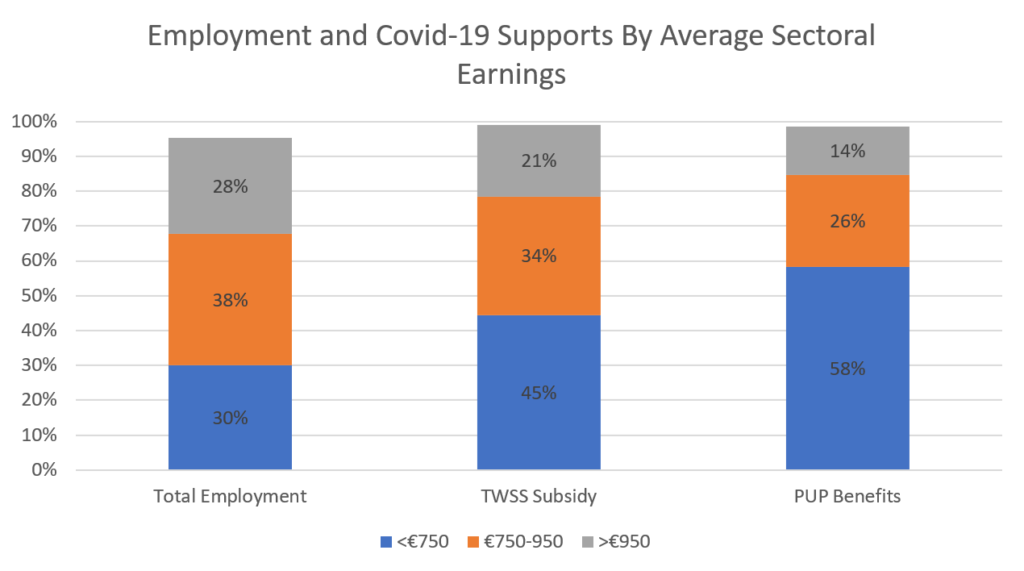Severe impact to housing supply this year due to COVID-19, but demand may be more resilient amongst borrowers on typical home buyer incomes
First time buyers on incomes less than €50,000 accounted for just 17% of FTB drawdowns (2019)
Earners over €50,000 per annum account for just 14% of PUP payment recipients
The latest Housing Market Monitor Q1 2020 published today by Banking & Payments Federation Ireland (BPFI) shows that, restrictions imposed to halt the spread of Covid-19 will have a huge impact on housing supply this year however, demand may be more resilient amongst borrowers on typical home buyer incomes.
Providing his analysis of supply and demand in the housing market post-COVID, Dr Ali Ugur, Chief Economist, BPFI said: “Ireland’s housing supply is going to take a significant hit this year given that the construction sector stopped all activity between the end of March and mid-May as well as the fact that current activity is very much limited due to work practice restrictions as part of Covid-19 health measures. Estimates before the current crisis for total housing completions in 2020 were between 24,000 to 26,000 units. Assuming that the sector could operate at 50% to 75% capacity for the rest of the year, we estimate total completions would be around 14,000 to 16,500 units in 2020 leaving a gap of between 10,000 and 12,000 units in total this year.”
“However, on the demand side, we feel this may hold up better due to the important role which income levels play in housing and mortgage demand. Looking at those in receipt of either the Pandemic Unemployment Payment (PUP) or the Temporary Wage Subsidy Scheme (TWSS) we can see that those in the highest income brackets have been impacted the least. Workers with average gross earnings of more than €950 weekly or about €50,000 per annum account for just 14% of those receiving the PUP payment and 21% of those participating in the TWSS scheme. Looking at these figures in the context of the mortgage market, it is earners in this same income bracket that account for the majority of those drawing down mortgages.”

Dr Ugur explained: “We know from previous analysis that First Time Buyers (FTBs) with incomes of less than €50,000 accounted for just 17% of the FTB drawdowns whereas customers with incomes less than €50,000 only accounted for 7% of the total drawdowns amongst mover purchasers in 2019. Given the significant and increasing share of FTBs in the Irish mortgage market, and income levels required to secure a mortgage, income losses during the pandemic may not have a significant effect on demand for mortgages from this cohort.”
“To summarise, while it is clear that the supply of new homes in 2020 will be less than what was estimated before the pandemic, it is also likely that demand for homes and mortgages may be lower than estimated due to uncertainty in the housing market and diminished consumer confidence. However, reduced demand due to lost or lower income levels is likely to depend on the pace of the wider economic recovery in 2020. Hence as both supply of, and demand for, housing will be impacted negatively due to COVID-19, it is likely that changes in average prices will reflect supply and demand imbalances in the short term.”
BPFI’s Housing Market Monitor draws on BPFI data as well as a range of other published research for its assessment of the current state of the housing market. The latest report for Q1 2020 can be found on the BPFI website here.
Notes: Banking & Payments Federation Ireland (BPFI) represents the banking, payments and fintech sector in Ireland. Together with its affiliates, the Federation of International Banks in Ireland, and the Fintech & Payments Association of Ireland, BPFI has some 100 member institutions and associates, including licensed domestic and foreign banks and institutions operating in the financial marketplace here.
The BPFI Housing Marking Monitor is published quarterly. In addition to presenting a unique range of loan-level data, the Monitor draws on a range of published data under the three key headings of housing supply, housing prices and rents, and housing transactions in its assessment of the current state of the housing market.
Contact: Jillian Heffernan, Head of Communications, 087 9016880 or jillian.heffernan@bpfi.ie






